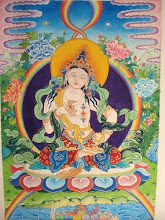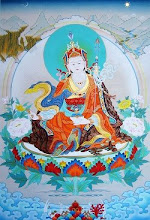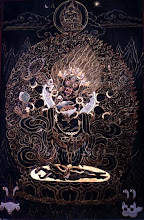I met Alan Watts about a year ago through a series of recorded lectures. From the first listen I was enthralled by his learning, wit, and eloquence. His talks were magic spells woven from strands of Zen, mystic Christianity, Taoism, and psychology, calling the listener to wake up, to see through the assumptive illusions of life, to put aside the effort of trying to change yourself and simply be yourself. For more than a couple of months I listened rapturously nightly, often going back to some of the more challenging and insightful talks.
 Aside from a lecture in which he spoke about his childhood interest in Asian art and his experience of English boarding school, what little I knew about him I picked up from references in his talks: he lived in California, was a former member of the clergy, had experimented with psychoactive drugs, and had met or knew a seemingly large coterie of influential and interesting people.
Aside from a lecture in which he spoke about his childhood interest in Asian art and his experience of English boarding school, what little I knew about him I picked up from references in his talks: he lived in California, was a former member of the clergy, had experimented with psychoactive drugs, and had met or knew a seemingly large coterie of influential and interesting people.What I didn't know was what an utter shambles he made of his personal life, which author Monica Furlong chronicles painfully enough in Zen Effects. Watts seemed never to have had any great purpose in life except to enjoy as much of it as possible, but for as much enjoyment as he received he seemed to have caused an equal amount of grief for those around him. He was, Gary Snyder remarked, “one who sowed problems wherever he went.”
His only professional experience as a clergyman ended in shame for his wife, his parents, and his church. For all the wit and charm and understanding he exhibited in public life, his private life was a cold and callous string of marriages punctuated by infidelity and child neglect. And despite a call to his audiences to embrace uncertainty, his fear of loneliness led to an alcohol induced death at the age of 53.
In many of his lectures, Watts referred to himself self-depreciatively as a philosophical entertainer and a genuine fake. I used to think he was simply making fun of himself, a bit of harmless manipulation of the audience. In the context of his personal life, though, the remarks seem almost confessional, a plea for understanding and perhaps forgiveness.
For many who idolized him, the pain of deceit is too great to bridge the gulf between Watts' public teachings and his private life. For myself, I can still appreciate his great intellect, his insight, and his ability to communicate. But I'll never quite think of him the same.
His only professional experience as a clergyman ended in shame for his wife, his parents, and his church. For all the wit and charm and understanding he exhibited in public life, his private life was a cold and callous string of marriages punctuated by infidelity and child neglect. And despite a call to his audiences to embrace uncertainty, his fear of loneliness led to an alcohol induced death at the age of 53.
In many of his lectures, Watts referred to himself self-depreciatively as a philosophical entertainer and a genuine fake. I used to think he was simply making fun of himself, a bit of harmless manipulation of the audience. In the context of his personal life, though, the remarks seem almost confessional, a plea for understanding and perhaps forgiveness.
For many who idolized him, the pain of deceit is too great to bridge the gulf between Watts' public teachings and his private life. For myself, I can still appreciate his great intellect, his insight, and his ability to communicate. But I'll never quite think of him the same.
#



























I never tire of reading about Alan Watts for the simple reason that in everything written by and about him paint a picture of someone "completely human". And, in the mixture of intellect, rascal, addictive personality and plain trouble-maker is a sparkle of something unique, open and refreshing. His Zen is something approachable by anyone anywhere. It is not the strict, aching legs marathon of endless Zazen and erudite Sutra scholarship but something vast and impossible to describe. For me, it is a ever fresh breeze. I attended the 1993 20th Celebration of Alans' passing. The start of the program begin with a recording of his voice saying " It's all Bullshit". Yes, it IS but any experienced gardener knows it is a good fertilizer.
ReplyDeleteThank you Alan.